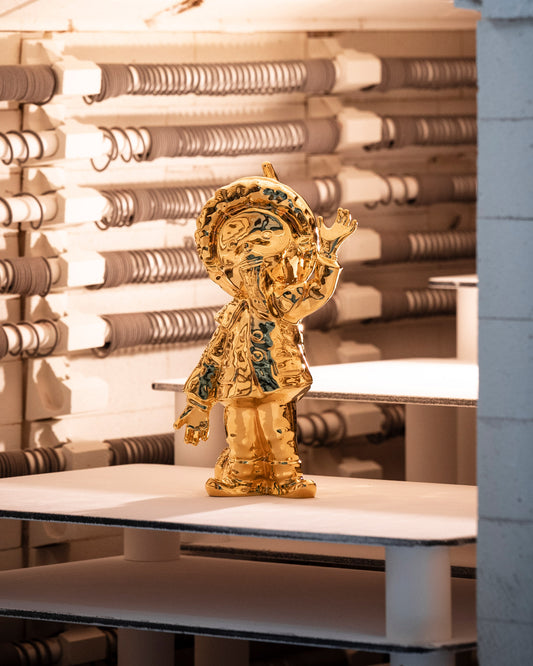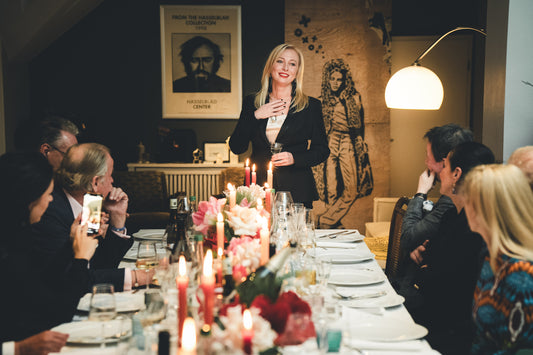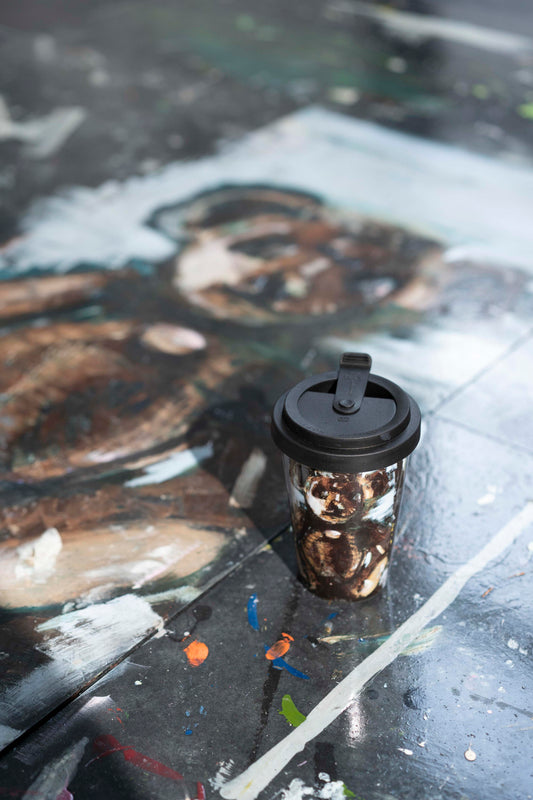BUNDLE FORCES AND DO GOOD
The blue of the latest KPM to-go cup has a special sender, because it is the blue of the human rights organization International Justice Mission (IJM). She works around the world to highlight social injustices and put an end to modern slavery. Together, IJM and KPM Berlin are now making the cup an ambassador for a special matter of the heart. You can find out more in the interview with Dietmar Roller, CEO of IJM...
Ghana is one of the largest cocoa producers in the world. An estimated 1.5 million children are exploited there for the collective enjoyment of chocolate products. Many of them do dangerous work such as clearing the fields with chainsaws, harvesting cocoa pods with machetes and handling harmful pesticides. According to the 2016 study “Children at the Heart” by Embode, an estimated 40 percent of children in the cocoa-growing regions of Ghana are exposed to these dangers and thus to a constant violation of the UN Convention on the Rights of the Child and the applicable national law, which is often not enforced. Abuses that are also being exploited in this country: 9.5 percent of the global cocoa harvest is processed in Germany, one of the countries with the highest consumption of cocoa products per capita.
Many people are not even aware of the problem of modern slavery. What does modern slavery mean?
Roller: Essentially nothing different than before: people are commercially exploited as goods and against their will. The term "modern slavery" is intended to draw attention to the sad fact that this ancient crime is still being committed worldwide, even though it is banned in most countries around the world. It just shows up in many modern varieties, in global supply chains and services. In fact, more people are enslaved today than ever before.
What is IJM doing to stop slavery and violence against people in poverty?
Roller: People in poverty not only lack access to money and education, they also lack the protection of the legal system. Therefore they become victims of violence and slavery. IJM (International Justice Mission) works with governments and authorities to change that. Together with the police and justice system, we free people from slavery and violent situations and accompany those affected into a life of freedom. We are also committed to the conviction and successful conviction of perpetrators. Finally, together with governments and authorities, we get to the roots of the problem in the legal system, for example by training the police and the judiciary.
To what extent are the consequences of modern slavery noticeable in Germany?
Roller: For each one of us, on average, around 60 people work as slaves. Many of the dumping prices of the imported products on our shelves would not be possible otherwise. This applies, for example, to electronic products, clothing, but also foods such as cocoa or fish. But of course people are also enslaved here in Germany. This is obvious, for example, in forced prostitution. Germany is an important hotspot in Europe for women who are abducted from Romania and Albania, for example.
One of the products that is most imported to Germany is cocoa. How can we imagine the conditions/working conditions in the cocoa industry or on the plantations?
Scooter: The work on the plantations is hard and sometimes dangerous or at least harmful to health. A lot of it is done by hand: clearing with chainsaws, harvesting with machetes, spreading pesticides. The bad thing is that in quite a few cases this difficult work is carried out by minors. There are estimated to be around 1.5 million children working on the plantations of Ghana and Ivory Coast, the largest exporters of cocoa. Among them are children who may be specifically abducted and then exploited.
The mug will be available in selected KPM stores until the end of 2021.
These are truly terrible conditions that many of us probably weren't even aware of because there is very little information about them. In order to provide this information and raise awareness, IJM has launched a very special project in Ghana. Can you say something more about that?
Roller: At the end of 2020 we were able to start our own project in Ghana, with funding from GIZ (German Society for International Cooperation GmbH) on behalf of the BMZ (Federal Ministry for Economic Cooperation and Development). The first thing is to understand the types of child labor and their backgrounds. In the next step, we examine which weaknesses in law enforcement promote the exploitation of children. And then we will support the education of the population. All with the aim of ensuring that children are better protected in the future and that exploitation can really be put to a lasting end.
What is special about KPM Berlin as a cooperation partner for this project?
Roller: The appearance and actions of companies are influential in the fight against slavery. The attitude with which they work, how they use their voice towards customers, how they perceive their social role. That has weight. When a traditional brand like KPM positions itself so clearly and publicly stands with us against slavery, then we are particularly pleased! We share a high appreciation for quality, sustainability and good work. This is what KPM stands for, this is what we stand for together.
What significance does the KPM To-go cup in IJM blue have for you as an ambassador for freedom?
Roller: It is necessary that we talk about this together without shame: It is 2021 and all forms of slavery must finally end! The KPM supports this concern with all its work and clear stance. The mug is therefore a great and bold statement. And with the to-go cup, everyone has the chance to take a clear stand in everyday life and literally bring this important topic into the world.
What advice can you give to anyone who wants to take a stand against modern slavery?
Roller: The most important step is the decision to deal with it: raise awareness of the problem, look at your own consumption, get information and, for example, ask manufacturers questions. Anyone who knows more will naturally start talking about it with others. Over 1,000 IJM ambassadors do exactly that throughout Germany, providing information and getting involved politically. Last but not least, every donation to us is of course a valuable investment in the future and enables us to free people.
About Dietmar Roller
What drives a social scientist and theologian from the Swabian Alb to take children out of silver mines in Bolivia or to look for missing minors in brothels in the Philippines? In Dietmar Roller's case, it was his many exciting experiences in international development cooperation. Through his many missions on behalf of victims of poverty and exploitation, he knows that improving legal systems plays a crucial role in the fight against human trafficking. As a globally sought-after expert, he makes the problem of slavery an important topic in development cooperation.
About IJM Germany eV
IJM Deutschland eV is the German branch of the world's largest anti-slavery organization International Justice Mission. We improve legal systems together with governments and local authorities to combat violence against people in poverty and guarantee their protection. A particular focus is on the abolition of slavery and human trafficking. We work at 30 locations in 22 countries worldwide with over 1,000 employees.
More information can be found here .


